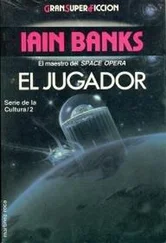When my Grandfather did eventually become entirely conscious and lucid and sat up in the bed in his book-lined room and was asked what his name was, he told his two dusky rescuers that he had been reborn, and so had no name. Hearing that he had muttered the name 'Salvador' during the first night, he suggested this was a sign from God to take that name, and asked his rescuers to address him so.
He then told the sisters of a canvas grip he had possessed which was all he wished to salvage from his past life. This canvas bag was most important to him, as was proved by the fact that while he could remember nothing else from the day of the storm, he knew that he had been carrying the canvas bag and that everything he valued had been inside it. He implored Aasni and Zhobelia to search the beaches and rocks around the place he had been found for the grip, and to bring it to him unopened if they did.
They duly searched, while my Grandfather recovered - often talking at some length about his revelations with Mr McIlone. Mr McIlone was an atheist, but he was still fascinated by my Grandfather's revelatory experience, even if he ascribed it to the effects of being near death, losing a lot of blood and possibly being affected by whatever strange herbs, liniments and potions were contained in the zhlonjiz poultice. Mr McIlone suggested that my Grandfather make use of the books on the shelves around him if he wanted to think further about his apparently religious experience, and this Salvador duly did, diffidently at first.
The sisters reported back to say they had found many things washed ashore, but no canvas grip. Before he was really well enough, Salvador struggled out of bed and joined them in the search, and the three of them scoured the beaches, coves, islets, inlets and rock pools of the coast. As the search went on, my Grandfather expounded upon his revelations with increasing force and conviction and in greater and greater detail. What the sisters understood, with their imperfect English and lack of a common cultural and religious background, they found both impressive and interesting.
Mr McIlone loaned Salvador an old army ridge-pole tent and he pitched it in the remains of an old seaweed processing factory a mile along the coast, not far from where Grandfather had been washed ashore. The tumbledown seaweed plant had become the centre of a highly complicated and acrimonious legal dispute before the war and so there was nobody to turn Grandfather and the sisters off the land; gradually they made the old factory their base and then their home. Meanwhile Aasni and Zhobelia continued to run their travelling shop business and Salvador roamed the shoreline further and further in each direction in the shortening daylight hours, still searching for the canvas grip. In the evenings, while the wind moaned through the old building and their paraffin lamps guttered in the draughts which swept the rooms they had refurbished in the factory offices, Salvador took to writing down the revelations the Creator had visited upon him and branded into his brain, while the livid mark on his forehead slowly faded to leave a V-shaped white indentation and his hair grew in prematurely white.
Often at his elbow were books borrowed from Mr McIlone's library, where he had begun his studies and was still welcome to pursue them. Grandfather had decided to work his way through every book and tract and pamphlet in Mr McIlone's spare room, a task he was accomplishing with voracious expedition as he used their insights and teachings to further refine his own.
Exactly when Grandfather and the Asis sisters embarked upon the more intimate aspect of their tripartite relationship is not recorded; Grandmother Aasni and Great-aunt Zhobelia were always coy about the details concerning which one took him to their bosom first, or whether they shared him from the start. Whether there was any acrimony over this (especially by the professed standard of the time) unorthodox sexual arrangement was not something they ever talked about. For his part, when asked about such matters Salvador has always assumed an air of regretful silence, implying that while of course he believes in openness and in the unashamed, celebrative sanctity of the bodily communing that is physical love, he is first and foremost a gentleman, and so forsworn from confiding anything on the subject without the express permission of both sisters (which, given that my grandmother Aasni died some years ago, is unlikely to be given unless it is at least partially from beyond the grave).
Salvador found manual work on Mr McIlone's farm to help himself and the sisters through the next year; meanwhile he continued to search and to write, with gradually less and more conviction respectively as time went by.
* * *
It took me some time to fall asleep after the car-wagon train restarted its journey; I suppose I was still excited after the whole business of stopping the train and boarding it.
The car I was in smelled strongly of plastic; the dashboard and much of the other trim was plastic and there were transparent plastic covers over the seats. I had taken out my compact Sitting Board in case I wanted to sit rather than lie down, then stowed my kit-bag in the front footwell and got into the back seat where there was more room. Judging that it might be rather noisy if I was trying to sleep, I had taken the plastic cover off the back seat and left it folded on the driver's seat, then I'd settled down for the night, but had not been able to sleep.
I felt uncomfortable just being in the car at all; it smelled so new and seemed somehow designed to be so archetypically bland that a true Luskentyrian could hardly feel otherwise. However my delight at having secured such an Interstitial mode of transport helped to ameliorate the effects of the car's toxic banality.
While I was still lying there trying to sleep, I thought of my cousin Morag, the apostate, and recalled once sitting with her on the platform of the Deivoxiphone, in the warm sunlight of a summer four years ago, when she was the age I am now and I was fifteen.
The Deivoxiphone was a piece of army surplus which was there at the farm before the Order took up residence; Mrs Woodbean - the lady who gifted the estate to us - had had a brother who collected strange vehicles and pieces of equipment and stored them at the farm (he was killed at a meeting of like-minded enthusiasts in Perthshire when a jeep he was driving too exuberantly turned over). One of the things he collected was a bizarre-looking device on a trailer which had been used briefly during the Blitz at the start of the Second World War. The instrument consisted of what appeared to be a number of gigantic fluted listening trumpets. Appearances in this case were not deceptive, for that was exactly what the apparatus was: a huge artificial ear for pointing at the skies and trying to hear German bombers before they arrived overhead. A sort of poor-man's radar, in other words, and from the little I have heard concerning their efficacy, about as useful as one might imagine.
When I was nine I thought this piece of junk was just the most wonderful mechanism on God's earth, and somehow got it into my head that it was important to rescue the thing from the paddock where it was being slowly submerged in weeds, and set it up somewhere. My Grandfather had been dubious, thinking the device had too much of an aura of clutter about it, but he could refuse me nothing, and so he'd had the thing taken off its trailer and hoisted up onto a wooden platform built especially on top of the old circular barn at the back of the farm. Grandfather named it the Deivoxiphone.
I did not, of course, believe that we would literally be able to hear the voice of God any better using this extraordinary contraption, but as a symbol of our ideals I thought it was powerful and important (I was going through a serious stage at that age and objects and stories which seemed symbolic meant a lot to me).
Читать дальше












